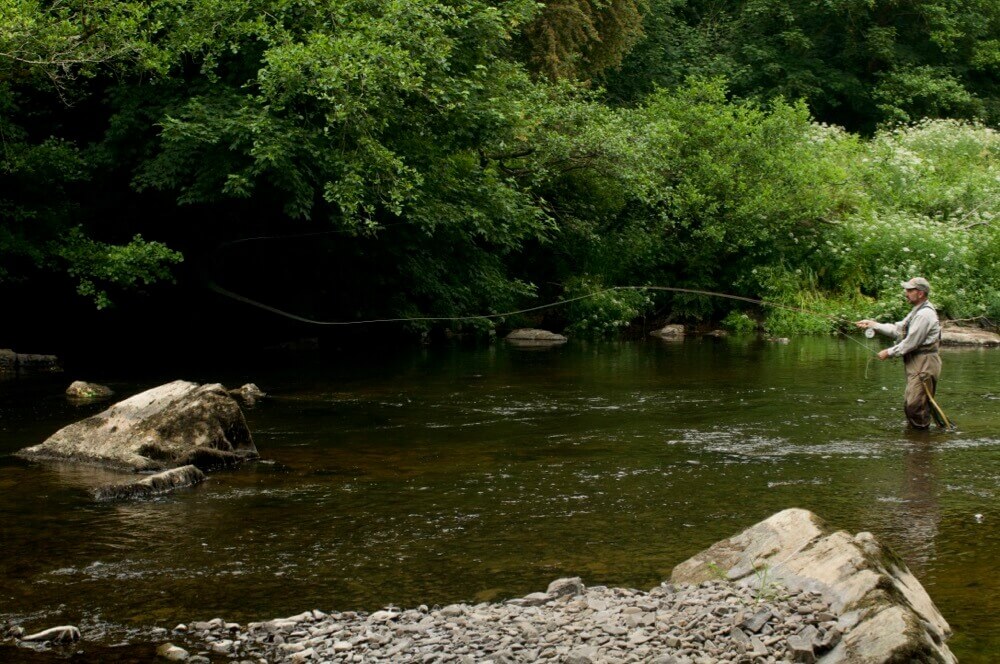Water Abstraction Reform
The Angling Trust, alongside other conservation and fisheries organisations has long campaigned for reform of the existing water abstraction licensing regime. The right to abstract water from rivers, aquifers, reservoirs etc. in England and Wales was formally created by the Water Act of 1963. This amalgamated the plethora of previous licences into a single permitting regime. This was done with little or no consideration of what level of abstraction water bodies could sustain.
Since then, we have seen a significant increase in both per capita use of water, population numbers, increased development – particularly in the South East of England – and the increased use of water for the irrigation of crops. Added to this is the impact of the climate emergency on rainfall patterns, with more heavy rain events and droughts hitting England and Wales.
The current regime is no longer fit for purpose and has resulted in inexcusable damage to the aquatic environment through excessive levels of abstraction.
Addressing unsustainable abstraction – abstraction reform
Environment Agency data obtained by WWF in late 2016 showed that a quarter of rivers in England were at risk from unsustainable abstraction:
- 14% were classified as over-abstracted – where current abstraction is causing river flows to drop below levels needed to sustain the ecosystem; and
- 9% were over-licensed, meaning that they would be over-abstracted if licence holders took all the water they were entitled to.
Low flows in rivers and water levels in lakes have a variety of damaging impacts on fish stocks:
- pollutants are concentrated
- temperatures increase
- oxygen levels decrease
- there is less wetted area for invertebrates and other food favoured by fish
- they are more vulnerable to predation
- they are less able to migrate up and down rivers to complete their lifecycle
- there is a greater risk of disease.
In December 2013, Defra published Making the Most of Every Drop: Consultation on Reforming the Water Abstraction Management System. This was long-awaited, extremely welcome, and we are broadly supportive of the proposals outlined: the linking of abstraction to availability; the introduction of smart and graduated abstraction limits; protection for the environment at low flows; removal of the archaic requirement to pay compensation to abstractors when making charges to licences; and implementation via a catchment-based approach.
More than seven years later, and many of these proposed reforms are yet to happen.
The government’s own 25-Year Environment Plan, published in 2018, set out the ambition to, “…become the first generation to leave [the] environment in a better state than we found it…”. Among other measures, this plan set out to respect nature in how we use water by, “reforming [the government’s] approach to abstraction reform”, and “increasing water supply and incentivising greater water efficiency and less personal use”.
In 2020, the government’s Environment Bill, finally brought forward plans to implement abstraction reform, by removing unsustainable licences and the “headroom” from those licences that were not taking all the water they were able to, if in doing so it would damage the environment. It would also remove the compensation payments currently paid if a licence is changed or removed. A big incentive for the government and the Environment Agency to do nothing due to the cost. Alarmingly, the Bill proposes that these measures do not come into force until 2028, a full 25 years after they were first proposed.
Our rivers cannot wait. We have 85% of the world’s chalk streams (add link to chalk stream pages), they are globally important habitats. You could call them our rainforests; they are that important. Many are drying up for part of their length. Over abstraction is killing them. We are campaigning for the reforms proposed in the Environment Bill to be brought forward. This needs to be in place now. Not sometime in the distant future.
The next five years will be a crucial test to see if the government and water companies are serious about reforming the way they abstract water, create more storage, waste less in leakage, and help us, as consumers, to use less.
Another aspect of the Environment Bill is the creation of regional water resource plans. Currently, the water we need is planned on a water company by water company basis. The proposed change to a regional approach means plans will cover a larger part of England, the East, the South East, the North West, etc, and should help with better planning and a more joined up approach.
To support this, the Environment Agency published, Meeting our future water needs: a national framework for water resources, in 2020. This national framework sets out the direction the regional water resource plans need to go in to ensure they balance the needs of society and the economic with the need to protect the environment. The Angling Trust will be monitoring, engaging, and responding to consultations and proposals as we move towards the publication of these plan in late 2023.
Past successes
The Angling Trust has repeatedly called for previously unregulated but cumulatively highly damaging abstractions to be included within the abstraction licensing system. In November 2017, the Government finally announced that these previously unlicensed abstractions, including trickle irrigation for agriculture, will be brought into the regulatory system under the banner of ‘New Authorisations’.
Trickle irrigation has increased dramatically in recent decades and can have a profound impact on river flows, particularly during drought conditions. The Angling Trust has welcomed the announcement to regulate these abstractions. However, we have expressed concern that they will be regulated with a ‘light touch’, which may mean that little changes on the ground.
In December 2017, after an intense public campaign by the Angling Trust and WWF, the Government published their plans to further address unsustainable abstraction. You can read all of these plans here.









